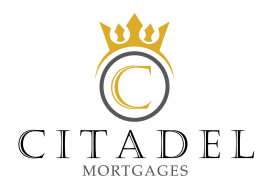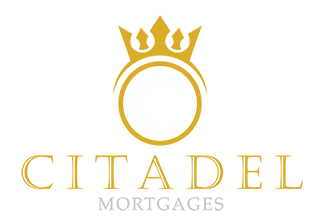Owning a home is a significant milestone for many Canadians, but the burden of a mortgage can weigh heavily on your finances. Thankfully, there are strategies and techniques you can employ to pay off your mortgage faster and save money on interest in the long run. In this comprehensive guide, we will explore various ways to accelerate your mortgage repayment and achieve financial freedom sooner. From increasing your mortgage payment amounts to taking advantage of accelerated payment options, we’ll cover it all. Let’s dive in!
Contents
How to Pay Off Your Mortgage Faster in Canada
- Increase Your Mortgage Payment Amount Above the Minimum
- Choose an Accelerated Payment Option
- Make Additional Lump Sum Payments
- Be Aware of Prepayment Penalties
- How to Pay Off Your Mortgage Faster When You Renew
- a.Take Advantage of Lower Interest Rates
- b. Fixed-rate Vs. Variable-rate Mortgage for Paying Your Mortgage Off Faster
- c. Shorten Your Amortization Period
- e. Keep Your Payments the Same When Changing Your Mortgage
- f. Consider an Open Mortgage Agreement Instead of a Closed Mortgage
- Factors to Consider Before Paying Off Your Mortgage Faster
- a. You’ll Have Less Money Available
- b. Do You Have an Emergency Fund?
- c. Other Financial Goals
- d. Is It Worth Paying Off a Mortgage Early in Canada?
- What Happens When You Pay Off Your Mortgage in Canada?
- a. Drawbacks of Paying Off Your Mortgage Early
- b. Penalties for Paying Off the Mortgage Early
- How Can I Pay Off My 30-Year Mortgage in 10 Years?
- a. Increase Your Monthly Payments
- b. Make Biweekly Payments
- c. Refinance to a Shorter Term
- d. Make Extra Lump Sum Payments
- e. Cut Expenses and Increase Income
- f. Consult with a Mortgage Professional
- What Happens If I Pay 2 Extra Mortgage Payments a Year?
- a. Shorter Mortgage Term
- b. Interest Savings
- c. Accelerated Equity Buildup
- d. Consult with a Mortgage Professional
- Is There a Downside to Paying Off Mortgage Early?
- a. Opportunity Cost
- b. Reduced Liquidity
- c. Potential Penalties
- d. Impact on Credit Score
- Will Paying Off My Mortgage Affect My Credit Score?
- a. Positive Impact
- b. Temporary Dip in Credit Score
- c. Maintaining a Mix of Credit
- d. Consult with a Mortgage Professional
1. Increase Your Mortgage Payment Amount Above the Minimum
One of the most effective ways to pay off your mortgage faster is by increasing your monthly payment amount above the minimum required. Even a small increase can make a significant difference in the long run. By adding an extra $200 per month, for example, on top of your regular mortgage payment, you can reduce the overall interest you pay and shorten the mortgage term.
However, it’s important to note that you should not exceed the repayment amounts permitted by the terms of your contract. Your mortgage agreement will specify the maximum allowable increase in annual payments before penalties are incurred. Additionally, once you increase your payments, you may not be able to reduce them again until the end of the term.
2. Choose an Accelerated Payment Option
Another effective strategy to pay off your mortgage faster is by opting for an accelerated payment option. This option allows you to make weekly or biweekly payments instead of monthly payments. By doing so, you effectively make one extra monthly payment per year, which can lead to significant interest savings over the amortization period.
Let’s consider an example to illustrate the potential savings. Family A has a $300,000 mortgage with a 6% interest rate, paying $1,942.00 per month. If they continue with their regular payment schedule, it will take them 25 years to pay off the mortgage, with $275,825.96 in interest payments. On the other hand, Family B, with the same mortgage and interest rate, chooses accelerated biweekly payments of $959.71. They will be able to pay off their mortgage in just 21 years, saving $51,047.74 in interest payments.
As you can see, opting for an accelerated payment option can lead to significant interest savings and help you pay off your mortgage faster.
3. Make Additional Lump Sum Payments
Making lump sum payments towards your mortgage is another effective way to accelerate your mortgage repayment. A lump sum payment is an additional payment you make on top of your regular mortgage payments. This payment can be made at various times, including before the end of your term, at the end of your term, or on specific dates specified in your mortgage contract.
The advantage of making lump sum payments is that they can either shorten the time it takes to pay off your mortgage or reduce your monthly payment amount. By putting extra money towards your mortgage, you can save on interest and ultimately become mortgage-free sooner.
However, it is crucial to review your mortgage contract carefully to ensure that your prepayments do not exceed the terms outlined. Some mortgage contracts may have penalties for prepayments that go beyond the agreed-upon limits.
4. Be Aware of Prepayment Penalties
Before making any additional payments or paying off your mortgage early, it is essential to review your mortgage contract and understand the prepayment penalties. Prepayment penalties are fees charged by lenders if you pay off your mortgage before the end of the term or exceed the prepayment limits specified in your contract.
To avoid any surprises, carefully read your mortgage contract and pay close attention to the details about penalties for prepayments. Understanding these penalties will help you make informed decisions about accelerating your mortgage repayment.
5. How to Pay Off Your Mortgage Faster When You Renew
Renewing your mortgage presents an opportunity to reassess your repayment strategy and find the best mortgage rate possible for the next term. Whether rates have increased or decreased, there are strategies you can employ to pay off your mortgage faster.
a. Take Advantage of Lower Interest Rates
When renewing your mortgage, it’s essential to shop around for the best rates available. Banks and credit unions are traditional lenders whose rates fluctuate according to the Bank of Canada’s prime rate. Even a small difference in interest rates can have a significant impact on your mortgage repayment. If the rates have gone down since you last signed a mortgage contract, you can potentially save money by taking advantage of the lower rates.
b. Fixed-rate Vs. Variable-rate Mortgage for Paying Your Mortgage Off Faster
When renewing your mortgage, you have the option to choose between a fixed-rate mortgage or a variable-rate mortgage. Each option has its pros and cons when it comes to paying off your mortgage faster.
i. Fixed-rate mortgages
A fixed-rate mortgage offers the advantage of a consistent interest rate throughout the term. This can make it easier to budget and plan your mortgage payments. Additionally, if the prime rates increase, your monthly mortgage payment will remain the same, providing stability and peace of mind.
ii. Variable-rate mortgages
On the other hand, a variable-rate mortgage typically offers a lower initial interest rate compared to a fixed-rate mortgage. The interest rate fluctuates with changes in the prime rate set by the Bank of Canada. If the prime rate falls, your mortgage payments will decrease, allowing you to pay off your mortgage faster at the new, lower rate. However, if the prime rate increases, your mortgage payments will also increase, requiring careful financial planning.
When deciding between a fixed-rate and variable-rate mortgage, consider factors such as your current financial situation, your ability to withstand potential rate increases, and your long-term plans for the property. It’s essential to choose a mortgage option that aligns with your financial goals and risk tolerance.
c. Shorten Your Amortization Period
The amortization period is the length of time it takes to pay off your mortgage in full. In Canada, the standard amortization period is 25 years, but it can be extended up to 30 years if your down payment is 20% or more. However, choosing a shorter amortization period can help you save money on interest and pay off your mortgage faster.
When renewing your mortgage, consider reducing your amortization period to accelerate your mortgage repayment. Shortening the amortization period will increase your monthly mortgage payments, but it will also enable you to become mortgage-free sooner and save on interest.
d. Keep Your Payments the Same When Changing Your Mortgage
When renewing your mortgage, it can be tempting to negotiate a lower monthly payment, especially if the interest rates have decreased. However, maintaining your regular payment rate, even with lower interest rates, can help you pay off your mortgage faster and save money.
By keeping your payments the same, you’re effectively paying more towards the principal balance, which reduces the overall interest you pay over the mortgage term. This strategy can help you become mortgage-free sooner and achieve financial freedom.
e. Consider an Open Mortgage Agreement Instead of a Closed Mortgage
When renewing your mortgage, you have the option to choose between an open mortgage or a closed mortgage. Each type has its advantages and disadvantages when it comes to paying off your mortgage faster.
i. Closed mortgages
A closed mortgage is a mortgage agreement that requires you to adhere to the established loan terms throughout the term. You can only make changes to your mortgage once the term is up. Closed mortgages typically have lower interest rates because the lender can rely on your consistent payments for the duration of the term. However, they are less flexible compared to open mortgages.
ii. Open mortgages
An open mortgage, on the other hand, allows you to make additional payments above the minimum monthly payment specified in the loan agreement. You have the flexibility to pay down your mortgage faster, potentially saving money on interest. While open mortgages may have slightly higher interest rates, the ability to make extra payments can outweigh the higher rate in terms of overall interest savings.
When deciding between an open or closed mortgage, consider your financial goals, repayment strategy, and the level of flexibility you require. Consulting with a mortgage professional can provide valuable insights and help you make an informed decision.
6. Factors to Consider Before Paying Off Your Mortgage Faster
While paying off your mortgage faster can provide long-term financial benefits, it’s important to consider various factors before implementing an accelerated repayment strategy. Here are some key factors to keep in mind:
a. You’ll Have Less Money Available
Paying off your mortgage faster means allocating more of your income towards your mortgage repayment. This can result in less money available for day-to-day expenses, savings, or other financial goals. It’s crucial to assess how this will impact your overall financial well-being and lifestyle. Consider whether you can comfortably manage your day-to-day expenses and maintain a reasonable quality of life while making accelerated mortgage payments.
b. Do You Have an Emergency Fund?
An emergency fund is a crucial component of financial stability. Before focusing on paying off your mortgage faster, ensure that you have an emergency fund in place to cover unexpected expenses. Having a safety net equal to two or more months of your family income can provide peace of mind and protect you from unforeseen circumstances.
c. Other Financial Goals
Consider your other financial goals and priorities before accelerating your mortgage repayment. While becoming mortgage-free is a significant achievement, it may not be the most advantageous use of your funds in every situation. Evaluate whether paying down other high-interest debts, such as credit cards or personal loans, should take precedence over accelerated mortgage payments. Additionally, investing in long-term diversified portfolios may provide higher returns over time, making it a more attractive option.
d. Is It Worth Paying Off a Mortgage Early in Canada?
Paying off your mortgage early in Canada can save you money in the long run. For instance, paying an extra $100 per month can shave off three years from a 25-year amortization period and save you $15,000 in interest. However, a recent survey conducted by CIBC and Angus Reid found that only 55% of respondents had taken action to repay their mortgages faster. The main reason cited was the inability to afford accelerated mortgage payments due to other financial obligations.
It’s important to weigh the benefits of accelerated mortgage repayment against your current financial situation, goals, and priorities. While paying off your mortgage faster can lead to significant savings, it should be a decision based on your individual circumstances.
7. What Happens When You Pay Off Your Mortgage in Canada?
When you pay off your mortgage in Canada, you become mortgage-free, and the equity in your home becomes entirely yours. This is a significant milestone and can provide a sense of financial security and freedom. However, there are a few considerations to keep in mind:
a. Drawbacks of Paying Off Your Mortgage Early
Paying off your mortgage early can have certain drawbacks. For instance, it may impact your investment goals, such as contributing to retirement savings accounts like RRSPs (Registered Retirement Savings Plans), RESPs (Registered Education Savings Plans), or TFSAs (Tax-Free Savings Accounts). Prioritizing accelerated mortgage payments over other investment avenues may limit your ability to build wealth in the long term.
Additionally, paying off your mortgage early means tying up a significant portion of your funds in your home equity. If you require access to that capital for other purposes, such as starting a business or investing in opportunities, it may not be readily available until you sell your property.
b. Penalties for Paying Off the Mortgage Early
Before paying off your mortgage early, it’s important to review your mortgage contract and understand the prepayment penalties. The penalties for paying off your mortgage early can vary depending on the terms of your agreement. In most cases, the prepayment penalty will be the higher of either three months’ interest on the remaining balance or the interest rate differential (IRD). The IRD is used when the interest rate on your mortgage is higher than the current interest rate, and you signed your current mortgage contract less than five years ago.
To get an estimate of the prepayment penalty, you can use the following example: Suppose you have an outstanding mortgage balance of $200,000, a current interest rate of 6%, and 36 months left in a 5-year term. If the current posted interest rate for a 36-month term offered by your lender is 4%, the approximate prepayment penalty would be $12,000 (the higher of the two amounts).
It’s essential to consult with your lender and review your mortgage contract to determine the specific penalties associated with paying off your mortgage early.
8. How Can I Pay Off My 30-Year Mortgage in 10 Years?
Paying off a 30-year mortgage in just 10 years may seem like a daunting task, but it is possible with strategic planning and disciplined financial habits. Here are some steps you can take to accelerate your mortgage repayment:
a. Increase Your Monthly Payments
The simplest and most effective way to pay off your mortgage faster is by increasing your monthly payment amount. By allocating more funds towards your mortgage each month, you can reduce the principal balance and save on interest.
b. Make Biweekly Payments
Instead of making monthly payments, consider switching to biweekly payments. By making payments every two weeks, you effectively make 26 half payments in a year, which is equivalent to 13 full payments. This extra payment each year can significantly reduce your mortgage term.
c. Refinance to a Shorter Term
If you have a 30-year mortgage and are looking to pay it off faster, consider refinancing to a shorter term, such as a 10-year or 15-year mortgage. While this may increase your monthly payment amount, it will help you become mortgage-free much sooner.
d. Make Extra Lump Sum Payments
Whenever you have extra funds available, consider making lump sum payments towards your mortgage. Whether it’s a tax refund, a bonus, or an inheritance, putting that money towards your mortgage can have a substantial impact on your repayment timeline.
e. Cut Expenses and Increase Income
To free up more funds for mortgage payments, consider cutting unnecessary expenses and finding ways to increase your income. This could involve reducing discretionary spending, downsizing your lifestyle, or exploring additional income streams.
f. Consult with a Mortgage Professional
Working with a mortgage professional can provide valuable insights and guidance on how to pay off your 30-year mortgage in 10 years. They can help you assess your financial situation, explore different repayment strategies, and find the best mortgage options for your needs.
What Happens If I Pay 2 Extra Mortgage Payments a Year?
Making two extra mortgage payments per year can have a significant impact on your mortgage repayment timeline. By making these additional payments, you effectively reduce the principal balance and save on interest.
a. Shorter Mortgage Term
Making two extra mortgage payments per year can shorten your mortgage term. For example, if you have a 30-year mortgage and consistently make two extra payments each year, you can potentially pay off your mortgage in 23 years instead of 30.
b. Interest Savings
By reducing the principal balance through extra payments, you also save on interest over the life of the mortgage. The more extra payments you make, the greater the interest savings. It’s important to note that the interest savings may vary depending on the interest rate and the length of the mortgage term.
c. Accelerated Equity Buildup
Making two extra mortgage payments per year helps to accelerate the buildup of equity in your home. As you pay down the principal balance faster, your ownership stake in the property increases. This can provide financial security and flexibility in the future.
d. Consult with a Mortgage Professional
To fully understand the potential impact of making two extra mortgage payments per year, it’s recommended to consult with a mortgage professional. They can provide personalized advice based on your specific financial situation and help you determine the most effective repayment strategy.
Is There a Downside to Paying Off Mortgage Early?
While paying off your mortgage early can provide financial benefits, there are potential downsides to consider. Here are a few factors to keep in mind:
a. Opportunity Cost
When you allocate extra funds towards your mortgage repayment, you may miss out on other investment opportunities. If the interest rate on your mortgage is relatively low, you may be able to earn higher returns by investing in other assets, such as stocks, retirement accounts, or real estate.
b. Reduced Liquidity
Paying off your mortgage early ties up a significant portion of your funds in your home equity. This can limit your liquidity and make it challenging to access cash when needed. If you have other financial goals or unexpected expenses, you may find it difficult to tap into your home equity without selling your property.
c. Potential Penalties
Some mortgage contracts may have penalties for paying off your mortgage early. It’s crucial to review your mortgage agreement and understand the terms and conditions associated with prepayment penalties. These penalties can offset some of the potential savings from accelerated mortgage repayment.
d. Impact on Credit Score
Paying off your mortgage early can positively impact your credit score by reducing your overall debt and improving your debt-to-income ratio. However, it’s important to maintain a healthy mix of credit accounts and continue using credit responsibly to maintain a strong credit profile.
Will Paying Off My Mortgage Affect My Credit Score?
Paying off your mortgage can have both positive and negative impacts on your credit score. Here’s what you need to know:
a. Positive Impact
Paying off your mortgage demonstrates responsible financial behavior and can positively impact your credit score. It reduces your overall debt and improves your debt-to-income ratio, which is a significant factor in credit scoring models. A lower debt-to-income ratio indicates a lower risk to lenders.
b. Temporary Dip in Credit Score
While paying off your mortgage can have long-term benefits for your credit score, it may cause a temporary dip in your score initially. This is because closing a mortgage account can affect the length of your credit history and the mix of credit accounts. However, this impact is typically short-lived, and your credit score should recover over time.
c. Maintaining a Mix of Credit
To maintain a healthy credit profile, it’s important to have a mix of credit accounts, including credit cards, loans, and mortgages. Paying off your mortgage may reduce the diversity of your credit accounts, which can have a slight negative impact on your credit score. However, this impact is generally minimal compared to the long-term benefits of being mortgage-free.
d. Consult with a Mortgage Professional
If you have concerns about how paying off your mortgage will affect your credit score, it’s recommended to consult with a mortgage professional or financial advisor. They can provide personalized advice based on your specific financial situation and help you navigate the potential impact on your credit score.
In conclusion, paying off your mortgage faster in Canada requires careful consideration, financial planning, and a comprehensive repayment strategy. By employing various techniques such as increasing payment amounts, utilizing accelerated payment options, making lump sum payments, and exploring refinancing options, you can achieve the goal of becoming mortgage-free sooner. However, it’s essential to weigh the benefits against potential drawbacks and consult with mortgage professionals to ensure that your approach aligns with your financial goals and circumstances.
Remember, paying off your mortgage faster requires discipline and commitment, but the rewards in terms of interest savings and financial freedom can be well worth the effort.
For any mortgage related questions and assistance reach out to Citadel Mortgages, your mortgage partner in Canada. a.

Unexpected costs when buying a home in Canada
When buying a home in Canada, there are several unexpected costs that buyers should be aware of to avoid financial surprises. Some of the key

Considering An Early Mortgage Renewal
Why consider renewing your mortgage ahead of time? Well, one big reason is changes in interest rates. If rates drop, jumping on an early renewal

How to get a HELOC on an Investment Property in Canada
To get a Home Equity Line of Credit (HELOC) on an investment property, you need to follow these steps: 1. Know Your Finances: Estimate the

Expert Advice: Buying a House in Cash in Canada
In exploring the possibility of buying a house in cash in Canada, it’s essential to understand the various aspects that come into play. Here’s a

Average Down Payment for a House in Canada
According to the Canadian Real Estate Association, the average house price in Canada hit around $637,673 in August 2022. This means if you’re looking to

Assumable Mortgages: An In-Depth Look
Assumable mortgages are a unique financing alternative that could potentially save you thousands of dollars and simplify the home-buying process. But what exactly are they





